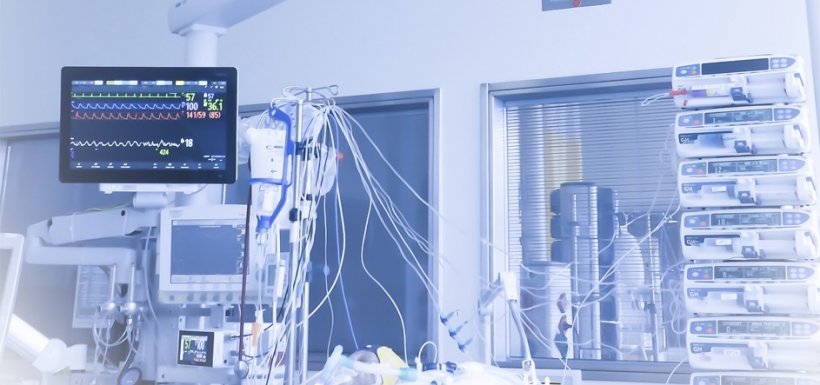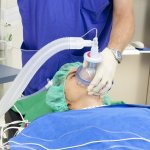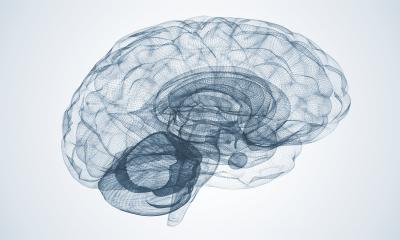
© Michael Wenzel
News • After the coma
Prolonged anesthesia 'rewires' the brain
Prolonged anesthesia, also known as medically induced coma, is a life-saving procedure carried out across the globe on millions of patients in intensive medical care units every year.
But following prolonged anesthesia--which takes the brain to a state of deep unconsciousness beyond short-term anesthesia for surgical procedures--it is common for family members to report that after hospital discharge their loved ones were not quite the same. A study by researchers at Columbia University and the University of Bonn now supports reports of neuro-cognitive changes after medically induced comas, a procedure that has been relied upon in treating Covid-19 patients during the pandemic. The study has been published in the journal PNAS.
Recommended article

News • Mysterious blackout
What happens when we lose consciousness during anaesthesia?
The first successful surgery under anaesthesia occurred in the 1840s. Since then, people have been developing theories about what might be going on in the brain while a person is unconscious. Even after thousands of surgeries, researchers still don’t understand exactly which specific areas of the brain are responsible for transitioning into unconsciousness and back.
"It is long known that ICU survivors suffer lasting cognitive impairment, such as confusion and memory loss, that can languish for months and, in some cases, years," said lead author Dr. Michael Wenzel. He conducted the study as a postdoctoral researcher at Columbia University in the U.S. and is now a research clinician at the Dept. of Epileptology at the University Hospital in Bonn.
Until now, despite the body of evidence that supports the association between prolonged anesthesia and cognition, the direct effects on neural connections have not been studied, said Rafael Yuste, a professor of Biological Sciences at Columbia and senior author of the paper. "This is because it is difficult to examine the brains of patients at a resolution high enough to monitor connections between individual neurons," Yuste said. To circumvent the problem, Yuste and Wenzel developed an experimental platform in mice to investigate the connections between neurons (“synapses”) during prolonged anesthesia and related cognitive effects. Inspired by Wenzel's experience in neurointensive care, the researchers established a miniature ICU-like platform for mice. They performed continuous anesthesia for up to 40 hours, many times longer than the longest animal study to date (only six hours).
The researchers performed in vivo two-photon microscopy, which can visualize live brain structures at micrometer resolution. The technique enabled them to monitor cortical synapses over many days, before, across, and after anesthesia. They combined the approach with repeated assessment of basic memory function.
Recommended article

Article • Rising up
Anaesthesia is a story of great success
Technical innovations and the implementation of quality standards in anaesthesia have immensely increased patient safety. ‘Over the past 60 years, patient safety during anaesthesia has improved more than in any other medical discipline,’ according to Professor Achim von Goedecke MD MSc, Director of the Institute of Anaesthesiology and Critical Care at Landeskrankenhaus Steyr in Upper Austria.
Contrary to the notion that the connections between neurons in the adult brain remain stable during anesthesia, the researchers found that prolonged anesthesia significantly alters the synaptic architecture of the brain regardless of age. "Our results should ring an alarm bell in the medical community, as they document a physical link between cognitive impairment and prolonged medically induced coma," Wenzel said.
As this study is only a pilot in mice, further study is needed, the researchers said. They added that it will be important to test different, widely used anesthetics, as well as the combination of anesthetics administered to patients. Currently, anesthetics are not individually tailored to patients in a systematic fashion. Moreover, while physiotherapy is important in keeping ICU patients’ joints smooth during anesthesia, there is no such adjunct therapy for the brain”. "We are well aware that anesthesia is a life-saving procedure," Wenzel said. "Yet, refining treatment plans for patients and developing supportive therapies that keep the brain in shape during prolonged anesthesia would substantially improve clinical outcomes for those whose lives are saved, but whose quality of life has been compromised."
Source: University of Bonn
21.02.2021





